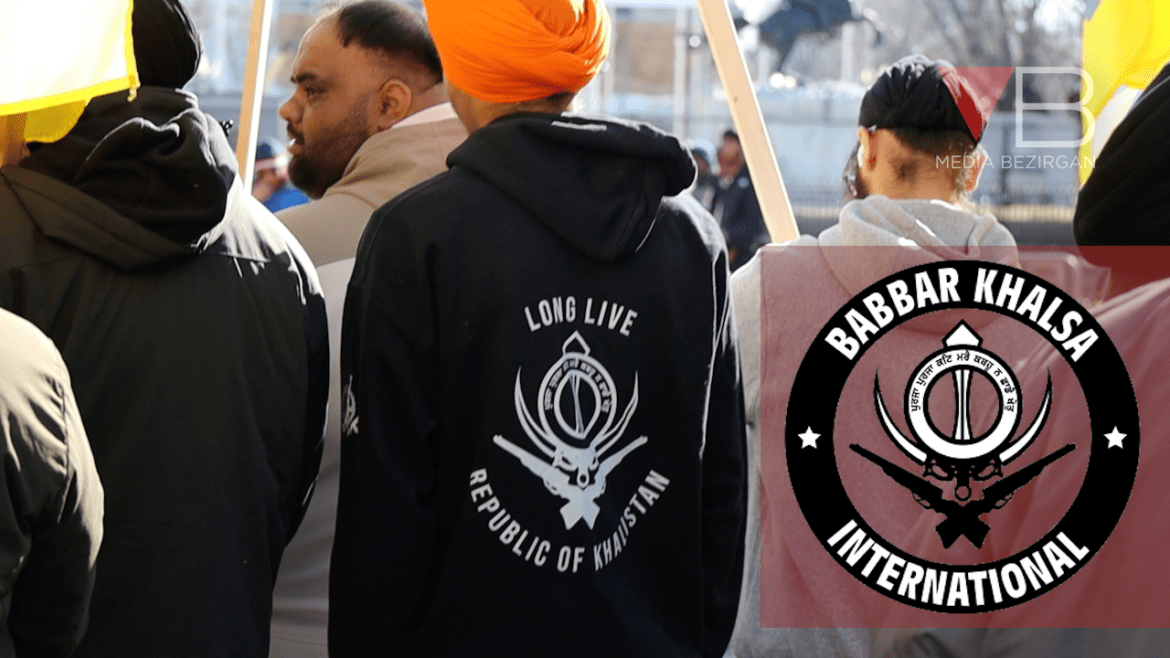AI Generated Summary
- The presence of such symbols at a political protest on American soil raises serious questions about the awareness and preparedness of law enforcement when it comes to recognizing the hallmarks of violent extremism.
- The World Sikh Organization and other Khalistani groups are now pushing for a third investigation into the Air India bombing, attempting to shift blame away from ‘Sikh Khalistani extremists’ and onto the Indian government.
- Even more concerning is the involvement of the protest’s organizing group, Sikhs for Justice (SFJ), whose Canadian coordinator, Santokh Singh Khela, was convicted of plotting to blow up another Air India flight departing from New York in 1987.
In the heart of Washington, D.C., a troubling display of extremism unfolded outside the White House. At a rally ominously dubbed ‘Kill Modi Politics,’ a demonstrator was spotted wearing insignia linked to Babbar Khalsa International (BKI)—a terrorist organization banned in India, the United States, and Canada. The presence of such symbols at a political protest on American soil raises serious questions about the awareness and preparedness of law enforcement when it comes to recognizing the hallmarks of violent extremism.
BKI has long been associated with heinous acts of terrorism. Canada has identified it as a Sikh extremist entity with the goal of establishing Khalistan, an independent state carved from India’s Punjab region. Over the years, BKI has been implicated in armed attacks, targeted assassinations, and mass bombings. The most infamous of these was the 1985 Air India bombings, a coordinated attack that remains Canada’s deadliest terror incident, killing 331 people, including 268 Canadian citizens. It was masterminded by Talwinder Singh Parmar, a name still revered in Khalistani circles, as evidenced by chants heard at the recent rally.
BREAKING: Washington police REMOVED Khalistani “Kill Modi Politics” demonstrators from the park in front of the White House, where U.S. President Trump and Indian Prime Minister Modi are meeting.
— Mocha Bezirgan 🇨🇦 (@BezirganMocha) February 13, 2025
The pro-India crowd was allowed to demonstrate, while the anti-India crowd was… pic.twitter.com/Y1qw5Tf6zm
Even more concerning is the involvement of the protest’s organizing group, Sikhs for Justice (SFJ), whose Canadian coordinator, Santokh Singh Khela, was convicted of plotting to blow up another Air India flight departing from New York in 1987. Though his conviction was later overturned, and there are unverified reports that he received a settlement from the Canadian government, the fundamental question remains: What would happen if Khela were extradited to the U.S. and retried for the New York bombing conspiracy? Would the outcome be different?
CBC interviews Sikhs for Justice's Ottawa organizer, Santokh Singh Khela, who was previously sentenced to life imprisonment by a Canadian court for conspiring to blow up Air India flight 110 departing from JFK, New York, in 1986.
— Mocha Bezirgan 🇨🇦 (@BezirganMocha) October 21, 2024
He served almost a decade in jail before a judge… pic.twitter.com/Tnxg7lRZ02
Khela, who was previously described by his own daughter as a BKI ‘Jathedar’ (commander of Sikh militants), continues to operate in the public sphere with alarming ease. He has been featured in CBC interviews as a ‘Sikh community leader’ in Montreal, with no mention of his troubling past. The World Sikh Organization and other Khalistani groups are now pushing for a third investigation into the Air India bombing, attempting to shift blame away from ‘Sikh Khalistani extremists’ and onto the Indian government. Meanwhile, law enforcement agencies in the U.S. and Canada appear to be struggling to keep up with the resurgence of pro-Khalistan extremism in North America.
The images from the rally should serve as a wake-up call. How aware are American security agencies of the symbols and rhetoric used by designated terrorist organizations? Would a group linked to any other terror ideology be given such latitude to organize and demonstrate freely? The U.S. has historically taken a zero-tolerance approach to extremism, yet Khalistani groups seem to operate with impunity, even when linked to organizations with violent pasts.
If terrorist groups like BKI are openly celebrated outside the White House, it signals not only a glaring lapse in intelligence awareness but also a disturbing double standard in counterterrorism policies. The U.S. and its allies must take a hard look at the growing extremism being cultivated under the banner of political activism. Otherwise, we risk emboldening those who have already shown their willingness to resort to violence in pursuit of their goals.




